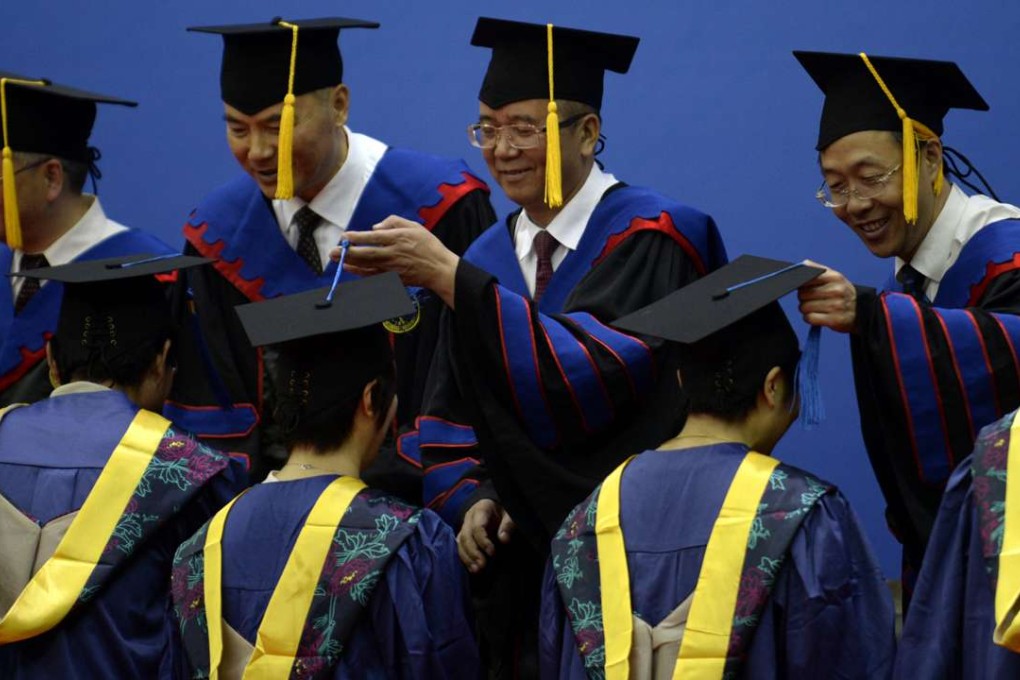Retaking the test: can China’s universities secure ‘world-class’ status at third attempt in two decades?
Experts decry latest ‘double world-class’ programme as ‘old wine in a new bottle’

China is eager to improve the standing of its higher education sector, wanting it to match the country’s economic clout, but a blueprint released late last year aimed at boosting the construction of “world-class universities and world-class majors” has been widely criticised as “old wine in a new bottle”.
The plan – the third such effort in two decades – envisages China having “a certain number” of universities and “a batch” of majors recognised as world-class by 2020. More would join them by 2030 and by 2050 China would become a country with a strong higher education sector that ranked highly internationally in terms of world-class universities and majors.
It’s easy to give money for a hardware facelift, but it’s difficult to revive the atmosphere of academic freedom
However, experts doubt the plan will help China achieve those goals.
They said top mainland universities’ global rankings had remained largely static for the past two decades, despite generous funding by the authorities, due to less than stellar academic progress.
Two Beijing institutions, Tsinghua University and Peking University, are now ranked in the top 100 in all four of the main university ranking lists after breaking into the upper echelon in the ARWU rankings released by the independent Shanghai Ranking Consultancy this month. It ranked Tsinghua 58th and Peking 71st. They were both ranked between 101 and 150 last year.
